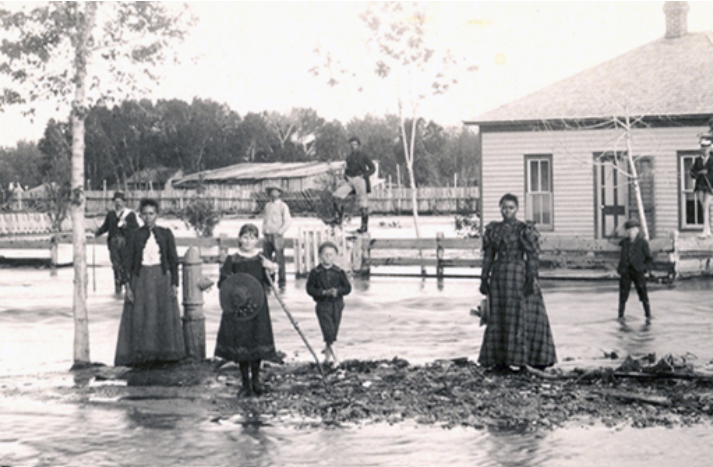 Boulder, Colorado, prides itself on being beautiful, welcoming, and inclusive. In 2019, two racially-charged policing incidents involving Black citizens made the national news. The documentary film, This Is (Not) Who We Are, explores the gap between Boulder’s self-image and the more complex lived experiences—both historical and contemporary—of its black citizens.
Boulder, Colorado, prides itself on being beautiful, welcoming, and inclusive. In 2019, two racially-charged policing incidents involving Black citizens made the national news. The documentary film, This Is (Not) Who We Are, explores the gap between Boulder’s self-image and the more complex lived experiences—both historical and contemporary—of its black citizens.
Black people have lived in Boulder continuously for 150 years, but their history is broadly underrepresented. Black families faced discrimination in housing, employment, education, health care, criminal justice, and social activities. By the 1920’s, Boulder had become a rallying point for the Ku Klux Klan. In the 1970s employment and housing opened up, but many problems remain. Although the particulars of Boulder’s history are unique, its social trajectory into the 21st century is nevertheless emblematic of many cities across the country that struggle to reconcile their liberal politics with the reality of their communities.
Our film project seeks to braid the lived experiences of Black characters ranging in age from 12 to 78, histories of people who experienced segregated housing and job discrimination in the 1920s and for decades after, and contemporary experiences, such as Naropa student Zayd Atkinson’s videotaped police harassment ordeal in 2019. We have documented conversations among people of different races, genders, age, and economic backgrounds, opening a space for dialogue about Boulder, its increasing gentrification. We raise questions about whether, and how, a more economically and racially diverse future is possible, both in Boulder and in cities like it across America.
Beret E. Strong and John Tweedy, of Landlocked Films, have been making films since 1995. Our films have appeared nationally on PBS and screened at film festivals around the world. Katrina Miller, owner of Blackat Productions, believes film can impact emotions, politics, and social trends. Her documentary Blacklash explored why her alma mater, the University of Colorado, Boulder, lacked ethnic diversity. We are grateful to the Denver Film Society, our film’s 501(c)3 fiscal sponsor. Film production and editing will be accompanied by grassroots and interorganizational outreach, in the hope of catalyzing awareness and change. Thank you for supporting this effort.
Photo courtesy of Carnegie Library for Local History, Museum of Boulder collection